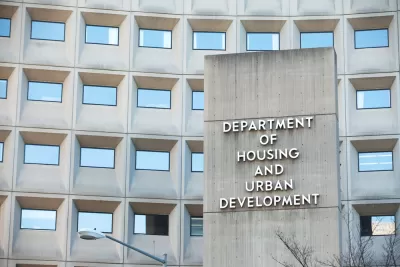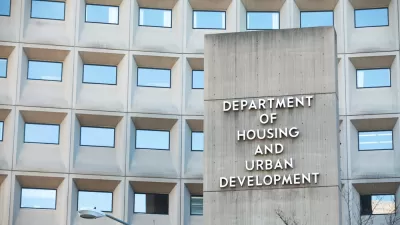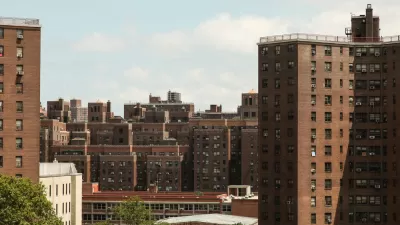The proposal by U.S. Housing and Urban Development Secretary Ben Carson would also allow property owners to require employment from renters receiving housing subsidies.

"U.S. Housing and Urban Development Secretary Ben Carson on Wednesday proposed raising the amount that low-income families are expected to pay for rent — tripling it for the poorest households — as well as making it easier for property owners to demand work requirements for those receiving federal housing subsidies," reports Tracy Jan.
The administration’s proposal sets the family monthly rent contribution at 35 percent of gross income, or 35 percent of their earnings working 15 hours a week at the federal minimum wage. Under the proposal, the cap for the poorest families would rise to about $150 a month -- three times higher than the current minimum. About 712,000 households would see their rents rise to the new monthly minimum of $150, HUD officials said.
Secretary Carson participated in a conference call with reporters saying that HUD has an imperative to reform the system, because the current system isn't working. Secretary Carson gave several justifications for this particular set of reforms, including that the current system is "too confusing" and crates "perverse consequences" that discourage people from finding new employment.
Diane Yentel, president of the National Low Income Housing Coalition, is quoted in the article saying the proposed changes couldn't come at a worst time for low-income households.

Maui's Vacation Rental Debate Turns Ugly
Verbal attacks, misinformation campaigns and fistfights plague a high-stakes debate to convert thousands of vacation rentals into long-term housing.

Planetizen Federal Action Tracker
A weekly monitor of how Trump’s orders and actions are impacting planners and planning in America.

In Urban Planning, AI Prompting Could be the New Design Thinking
Creativity has long been key to great urban design. What if we see AI as our new creative partner?

Chicago’s Ghost Rails
Just beneath the surface of the modern city lie the remnants of its expansive early 20th-century streetcar system.

Baker Creek Pavilion: Blending Nature and Architecture in Knoxville
Knoxville’s urban wilderness planning initiative unveils the "Baker Creek Pavilion" to increase the city's access to green spaces.

Pedestrian Deaths Drop, Remain Twice as High as in 2009
Fatalities declined by 4 percent in 2024, but the U.S. is still nowhere close to ‘Vision Zero.’
Urban Design for Planners 1: Software Tools
This six-course series explores essential urban design concepts using open source software and equips planners with the tools they need to participate fully in the urban design process.
Planning for Universal Design
Learn the tools for implementing Universal Design in planning regulations.
planning NEXT
Appalachian Highlands Housing Partners
Mpact (founded as Rail~Volution)
City of Camden Redevelopment Agency
City of Astoria
City of Portland
City of Laramie





























